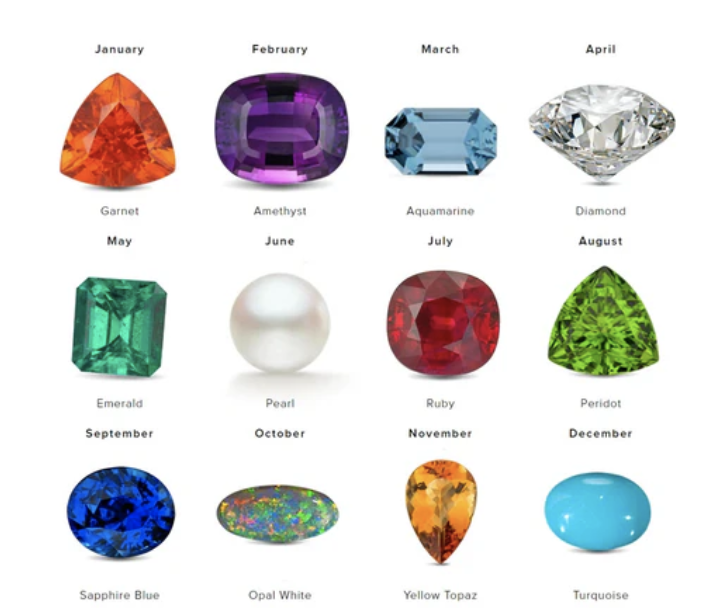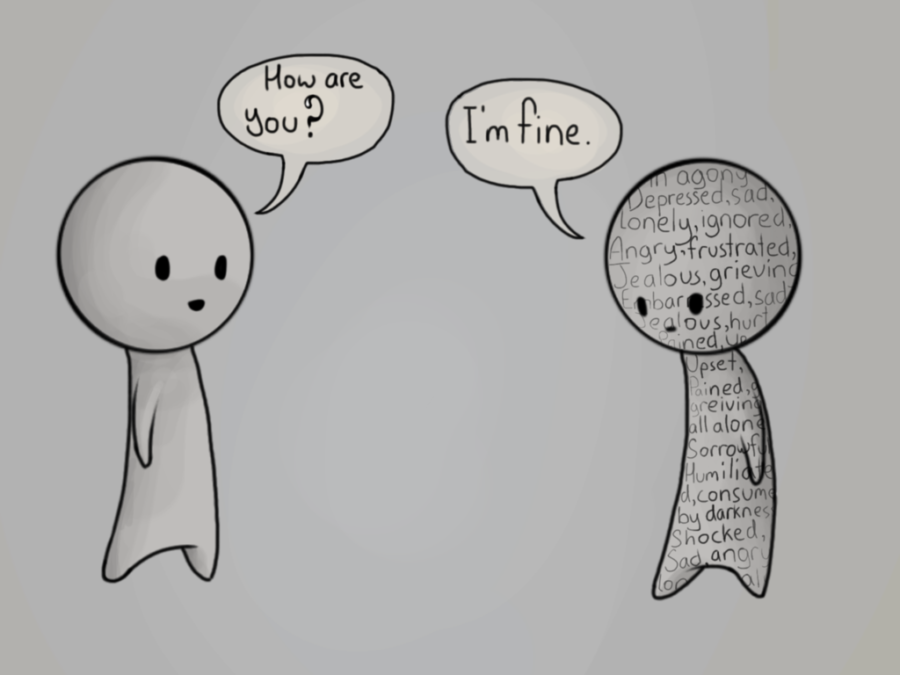I’m (Not) Fine
People often use the phrase “I’m fine” because they don’t know how to express themselves or fear being a burden to others, but this suppresses their emotions and can make their situation worse.
February 15, 2022
Many people have gone through a difficult time in their life. Whether it be a bad day or an ongoing personal issue, it still impacts them in some way. Despite this, when asking someone how they are doing, there has likely been a time where they say “I’m fine.” It may seem like they are okay, but there is often much more to this phrase than just two words of false hope.
“I’m fine” is a very convincing phrase that can deceive many people. The person saying it can have the brightest smile ever, but deep inside can be hurting. It is a secret sign that they aren’t actually doing okay, and this should be acknowledged.
Unfortunately, we are born in a society that tells us to suppress our emotions so we don’t cause drama, or so we don’t sound immature. Because of this, people often fear judgment when sharing that they aren’t okay (Psychology Today). Megan Chou (11) believes another reason people don’t speak up when they are going through a rough time is that “they ultimately don’t want to burden other people with any problems they may have. Sometimes, it’s also hard to open up when you don’t know how others will react or if telling them will even help the situation.” It is important to say something though, as being consumed by your own thoughts can be extremely overwhelming, and can affect your daily life and how you act around people. I know all of this because I myself have been guilty of saying “I’m fine” at a time I wasn’t okay.
You are living a lie saying that you are fine. Fine is not waking up each day wondering if you can make it the whole day. Fine is not having to question when your life will get better and if your situation will ever change. These are questions many ponder in their minds for a long time, but often nobody ever suspects anything and assume they are living a completely happy life.
Even if this isn’t a phrase you tell people, this can even be an internal issue where you try to convince yourself that you are fine. However, your emotions and mental state are often not something you can control, and trying to pretend you are okay will actually do anything but help. To find stability in their lives, people can resort to things such as OCD and anxious habits to make some sort of routine. Though it may get their mind off the situation, I have learned from an experience like this that trying to deny how you feel and attempting to live your life normally when your situation is anything but that pushes away any progress in getting better.
When I person finally got the courage to finally confess that I, in fact, was not fine, it brought about a period of time where I could finally start to heal. And it is not just me, but many others can find a great change in their life if they can finally come to realize that their quality of life can improve if they stop concealing their struggles with the words “I’m fine.” It is not a burden to anyone, and for those who can clearly see something is wrong, it can be quite frustrating to keep getting the same “I’m fine” response. Megan Chou (11) agrees with this, mentioning how “when someone says “I’m fine” in a tone that doesn’t sound like they are, I wonder if something is going on behind the scenes in their lives.”
They say the truth hurts, but it also heals. Promising to be honest with yourself is a big step of recovery, and will allow you to accept how you are feeling rather than old habits of hiding from it. Instead of thinking to myself, “just one more day and things will get better” and being unsure of what to do, I have found comfort in being honest and open about how I am doing and knowing when it is necessary to tell someone if I am not fine.
Not only does it heal you, but telling someone what you are going through can help release a lot of the anxiety, pain, and stress that were buried deep down when you were holding your emotions in. It can bring a connection with others to understand the importance of sharing how we are truly feeling. They may be able to offer great advice that can help you, and you may be able to find similarities and with them.
Now, whenever I hear someone say the words “I’m fine”, and I can tell that they are not doing well, I will often respond with how I notice they don’t seem fine and/or let them know that I am here for them if they need anything. Over time, I have discovered that “I’m fine” is a common lie, but can also be a very dangerous one too. From this, understanding the purpose of not just saying you are fine can be a big difference in your quality of life, and a simple change of words can even be life-changing.





































